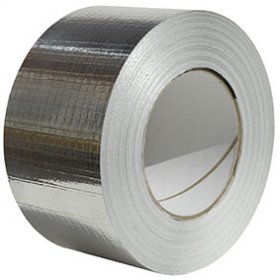

Why are you quoting a US site for a case in China?
New account since lemmyrs.org went down, other @Deebsters are available.


Why are you quoting a US site for a case in China?


Conversely, if the pricing is due to an error, the company can petition the court to annul the purchase contract, allowing it to refund customers without the necessity of delivering the goods.
Surely, this will apply.


There’s kroki as well, which includes Mermaid, Excalidraw, GraphViz, PlantUML, etc.
For me it’s the Intellivision with its controllers that were attached with phone cords and those plastic inserts that would customise the controller for each game.

I think we only had one game, Triple Action (although only the tanks and biplanes were worth playing).

My parents’ house still has more vintage tech than most computer museums.


Ukraine have destroyed three bridges in Kursk, which will affect Russia’s ability to get supplies to their invading forces, but they’re also over rivers where it’s fairly trivial to set up temporary bridges (unless they are destroyed by drones).


Patrick Delaney’s salute:

I know News Corp are evil, but this pic looks more mocking than heartfelt.


Probably not; I’d expect the places where you need something like UUIDv7 (large, eventually-consistent systems) to not be entirely suitable because you can have records added out of sequence. You’d have to add a received-at field - but in that case you may as well just use a standard incrementing ID as your primary key.


In time-based pagination, the suggested fix to lots of data in a selected timespan is:
simply adding a limit to the amount of records returned (potentially via a query parameter) transparently solves it.
This means clients can’t see all the results, unless you add a way to view other pages of data, which is just pagination again. Or is the intended design that clients view either the first x results (the default) or view all results?
The problem with articles like OPs and others is that they don’t allow custom sorting, which is often a requirement, e.g. interfaces that present the data in a table, where column headers can be clicked to sort.


News was reporting yesterday that there was an arrest warrant out for Volodymyr Z in Poland but that he just popped over the border back to Ukraine.


[Truss complained that the British press wasn’t] “particularly deferential to politicians”
Why should they be? Their job should be to inform the public, not suck up to those in power.


Oh I see - yes, if the seats around the women are automatically reserved then that exploit doesn’t work.


I was thinking first would be the fake booking to find where the women were sitting, then switch browsers/clear cookies/whatever and book with the real details.


The airline’s booking process is fairly standard except for the seat map which highlights seats occupied by women with the color pink. This information is not visible to male passengers, according to the airline, CNBC reported.
What’s to stop a man from claiming to be female to see the map of where women are sitting, and then booking an adjacent seat themselves?


I felt the same when reading that book, and I never finished it because following the rules he suggested produced horrible code.
If memory serves, he also suggested that the ideal if statement only had one line inside, and you should move multiple lines into a function to achieve this.
I once had to work on a codebase that seemed like it had followed his style, and it was an awful experience. There were hundreds of tiny functions (most only used once) and even with an IDE it was a chore to follow the logic. Best case the compiler removed most of this “clean” code and the runtime wasn’t spending most of its time managing the stack like a developer had to do.


Oh, that’s LAN - I thought you’d put ian and I was trying to get the joke. Stupid sans-serif fonts.


I know of it because Helix uses it, and it works really well.
If you need to refer to a key with ~ or / in its name, you must escape the characters with ~0 and ~1 respectively. For example, to get “baz” from { “foo/bar~”: “baz” } you’d use the pointer /foo1bar0.
I guess they’re using ~ for escaping since backslash is already escaping text content, not that you’d see it very often in keys.
Having magic values instead of using ~~ and ~/ feels ugly.


Where are you getting that from? The article you’re commenting on say otherwise:
France’s state railways company SNCF called the overnight disruption a “massive attack aimed at paralyzing the high-speed line network.”
Similar article from The Standard
They were focused on the TGV high speed train network which covers the whole of France, and which is particularly busy at this time of year.
Eurostar’s Brussels-Lille-London trains are not affected.


In another video […], young settlers are seen tampering with the village’s water pipes as soldiers look on. The military said soldiers helped repair the pipe soon after.
They just let it happen but cared enough to fix it afterwards? This is the kind of excuse I’d expect from an eight-year old.
My (ISO) keyboards do, under the Esc key. I guess you’re in North America (or Australia) and have an ANSI layout.